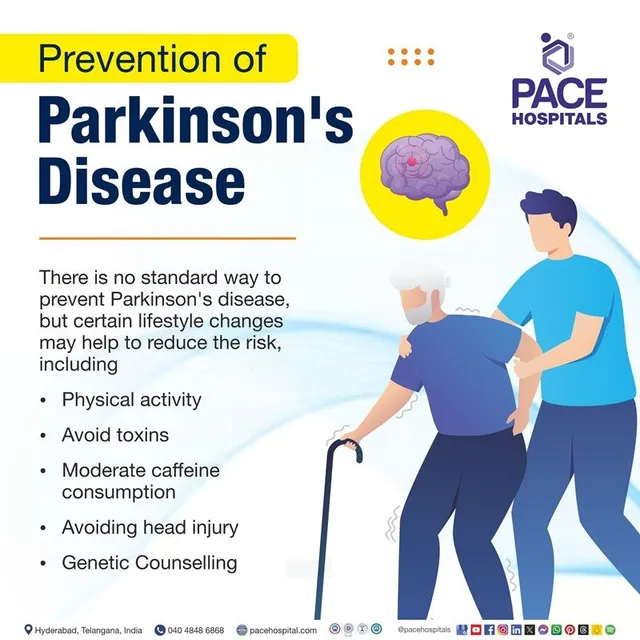
1. Medical Treatment
-
Medication: Most common is Levodopa/Carbidopa (Sinemet), which helps replenish dopamine.
-
Other medications: MAO-B inhibitors, dopamine agonists, COMT inhibitors.
-
Deep Brain Stimulation (DBS): For some patients, this surgical option helps reduce motor symptoms.
🧠 Consult a neurologist (ideally a movement disorder specialist) to tailor a treatment plan.
2. Exercise & Physical Therapy
Exercise is one of the most powerful tools to fight PD.
-
Aerobic Exercise: Walking, cycling, swimming.
-
Strength Training: Improves balance and posture.
-
Stretching & Yoga: Enhances flexibility and reduces stiffness.
-
Tai Chi: Shown to reduce falls and improve balance.
-
Physical & Occupational Therapy: Helps maintain daily function and mobility.
🏃 Regular exercise can slow progression and improve symptoms significantly.
3. Healthy Diet
-
Antioxidant-rich foods: Berries, leafy greens, nuts.
-
Omega-3 fatty acids: Found in fish like salmon and flaxseeds.
-
High-fiber diet: Helps with constipation, a common PD symptom.
-
Stay hydrated.
-
Avoid excess protein at certain times, which can interfere with levodopa absorption.
🥦 A nutritionist familiar with Parkinson’s can help you develop an ideal diet.
4. Mental Health & Cognitive Support
-
Cognitive exercises: Puzzles, reading, learning new skills.
-
Manage depression/anxiety: Very common in PD. May need therapy or medication.
-
Social connection: Stay engaged with community and loved ones.
🧩 Consider seeing a neuropsychologist if you notice changes in thinking or mood.
5. Speech & Swallowing Therapy
-
Speech therapy (LSVT LOUD): Helps with voice projection and communication.
-
Swallowing therapy: Important if choking or aspiration becomes a concern.
🗣️ Early intervention is key to maintaining communication and nutrition.
6. Sleep & Rest
-
Sleep disorders are common in PD.
-
Practice good sleep hygiene: Regular schedule, no screens before bed, calm environment.
-
Consider a sleep study if symptoms persist (e.g., REM sleep behavior disorder).
😴 Talk to your doctor about sleep aids or therapies if needed.
7. Stay Informed & Proactive
-
Join support groups (in-person or online).
-
Follow Parkinson’s organizations like:
📚 Education empowers better decisions.
8. Complementary Therapies (Discuss with Your Doctor)
-
Acupuncture
-
Massage
-
Music therapy
-
Mindfulness and meditation
Summary: Daily Checklist
✅ Take meds on time
✅ Exercise (30–60 min daily if possible)
✅ Eat brain-healthy food
✅ Stay mentally and socially active
✅ Practice balance and flexibility
✅ Manage stress and sleep